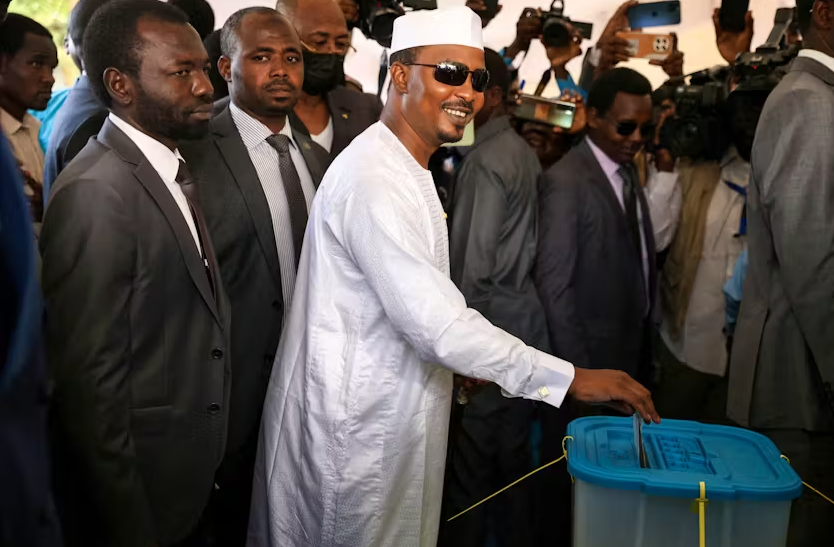Chad’s Opposition Leader Challenges: By making a bold move and appealing to Chad’s constitutional council, the opposition leader has set the stage for a potential upheaval in the outcome of the country’s most recent presidential election. On Sunday, Succès Masra took to social media to share the proof of her appeal, posting a copy of the receipt that confirmed the documents were sent to the council.
President Mahamat Deby Itno was declared the winner with slightly more than 61% of the vote in the May 6 presidential election, according to preliminary figures. Masra, the runner-up, received more than 18.5% of the vote. A member of Chad’s transitional administration, Masra challenged the findings, claiming they were manipulated. He alleges that the election was marred by irregularities such as voter intimidation and ballot stuffing. Despite his claims, he still hasn’t shown any concrete proof to back up his accusations.
The Associated Press quoted Rakimdon Jacques Houitouto, a human rights law specialist based in Chad, who commented on the situation, saying that the constitutional council, with its unpredictable nature, may consider invalidating the election results if it finds Masra’s case compelling. The timing of the council’s decision remains a mystery.
It was widely expected that the incumbent would win Chad’s long-awaited presidential election, which took place after three years of military rule. After his father, President Deby Itno, Mahamat Idriss Deby, died in 2021 in fighting with rebels, his son, President Deby Itno, took over the presidency. His father had ruled for 30 years.
Since declaring independence from French colonial authority in 1960, the oil-exporting nation of over 18 million people has struggled to accomplish a democratic transfer of power. The country has experienced long periods of military rule and political instability, making the current appeal process a significant test for its democratic institutions.
Leaving Chad in October 2022, Masra led the opposition party known as The Transformers. Protests against Deby Itno’s plan to extend his tenure by two years led to the suspension of his party and six others by the military administration. The administration has described the protests as “an attempted coup,” and more than 60 people lost their lives as a result.
Masra and other opposition leaders were able to return to Chad after talks between the country’s minister of reconciliation, a key figure in the government responsible for mediating political disputes, and Masra’s political party in late 2023 resulted in an accord. After that, Masra became the prime minister.
The difficulties of democratic rule in the area and the complexity of Chad’s political scene are both highlighted by the continuing appeal process. How the constitutional council decides on Masra’s appeal and what it means for the political future of the country are both open questions.



















